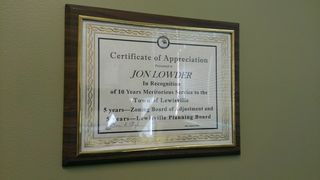If you walked down just about any street in America and randomly asked people their opinions of “government” they would almost certainly describe it as bloated, bureaucratic, incompetent, invasive, etc. You would likely be challenged to find someone with something good to say.
Some of these negative assessments are earned – many governments are bloated, bureaucratic and, at times, incompetent – but some of the sentiments are the result of a cacophony of anti-government or small-government advocates. Some of them believe in their heart of hearts that all services, with the exception of public safety, would be most effectively provided by the private sectors. Others believe government is inherently evil and hold an Orwellian world view that just about anything the government does is an assault on individual liberty.
On the flip side of the coin you have people who see the government as the best option for addressing many of society’s ills, but they might see the folks running the show as a lesser light or the systems in place as overly bureaucratic and inefficient.
What all sides have in common, though, is a healthy case of cynicism about the government. Most simply do not trust it, whether from negative personal experiences dealing with the government (DMV lines come to mind), or from stories they’ve heard repeatedly from friends and from the media.
Luckily, for the most part the lack of trust is fed by relatively harmless inconveniences like long lines, higher than expected water bills or slow permitting processes for home improvements. That gives us all some ammunition for running jokes, but since we’re relatively safe and secure in our daily lives it doesn’t give us much cause for doing much more than telling jokes.
That’s why the Flint, MI water story is so important. Multiple governments failed to protect the health and safety of Flint’s residents, and apparently even worked to cover up their failings. This wasn’t a normal hot button issue, like the police shootings and “Black Lives Matter” stories that we heard so much about. While those stories were important and people were hurt, not everyone could identify with them because not everyone has had interactions with the police or could empathize with what it’s like to be black in America.
The Flint water story is about the failure of government to provide a fundamental service that affects everyone, safe drinking water, and then trying to cover it up. EVERYONE can picture themselves in that situation, and they can empathize with the plight of the citizens of Flint. The government violated the public trust and by doing so it weakened the very foundation upon which a civil society is built.
Not to overstate it, because we still do live in an incredibly stable society relative to the rest of the world, but if we don’t start demanding responsible governance from our elected leaders then we are going to see more and more failures like this one. We get enough of those and our society won’t seem so stable anymore.
So, let’s stop with the “all government is bad” rhetoric, along with its “all taxes are bad” cousin, and start having intelligent discussions about how government can best serve our citizens’ needs and take it from there.
